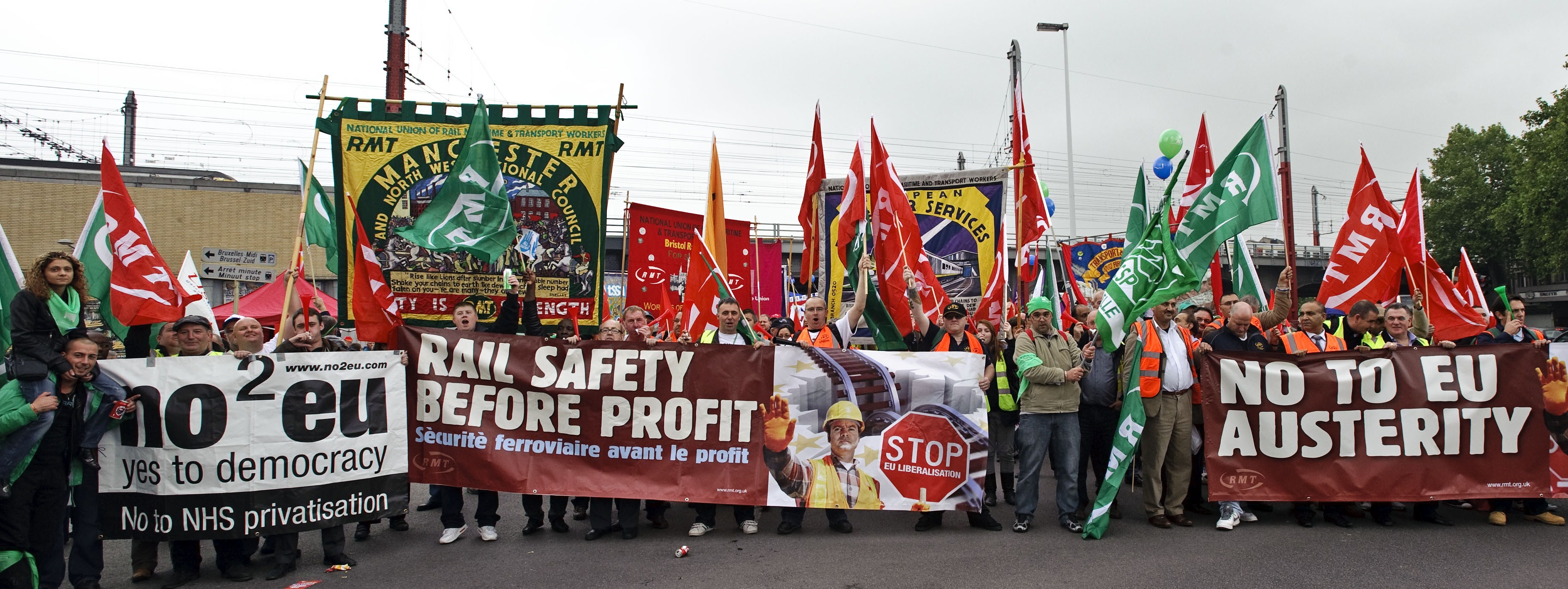Democrat September-October 2010 (Number 120)
EU demands pay cuts
EU demands pay cuts
Brian Denny

Italian economics minister Giulio Tremonti emerged from a meeting of EU finance ministers recently to announce that "budget policies in European countries cannot be national policies any more".
Under the Lisbon Treaty, the EU is giving itself the power to slap economic sanctions and fines on countries which refuse to slash public services in order to cut deficits and maintain "budgetary discipline".
Marco Buti of the European Commission for Economic and Financial Affairs followed this bombshell to tell us how the EU plans to slash public sector wages.
"When wages in the public sector damage competitiveness and price stability then the country will be requested to change this policy.
"And the wage development in the public sector does of course have a great influence on the private economy," he said.
EU Transport Commissioner Siim Kallas also revealed more new Thatcherite rules designed to increase competition and private sector involvement in European rail networks.
He is proposing a 'Single European Railway Area', dominated by EU "open access" competition rules, which incrementally remove national governments' power to control their own rail networks.
"My aim in all of this is more competition in passenger and freight services.
"I intend to move forwards as quickly as possible with legislative proposals to open up the market," he said.
Unelected EU institutions, without a mandate, are now deciding the budgets of member states, how much public sector workers earn and how fast Europe's railways can be privatised along the lines that created the dysfunctional transport mess we have in Britain.
That is why over 100,000 trade unionists marched in Brussels last month against unelected institutions like the European Central Bank and the European Commission which are driving up unemployment by slashing public borrowing and investment.
Ignoring the huge protests outside his window, European Commission president Jose Manuel Barroso declared there was "a sea change in the way economic governance is dealt with in the European Union".
Under the plans, fines for countries which fail to meet the Thatcherite Stability and Growth Pact economic criteria will be "quasi-automatic", meaning that they could only be blocked by a qualified majority within the European Council.
Tory Chancellor of the Exchequer George Osborne agreed with EU ministers for the need for "credible sanctions" for member states which did not conform with EU budget rules.
These EU-backed austerity measures are being repeated in all member states, especially those locked into the disastrous single currency. France is attempting to cut pensions and raise the retirement age to 62 from 60, and force employees to work longer.
In Spain public sector workers face a pay cut of five per cent while unemployment has more than doubled to about 20 per cent.
The Greek government has pledged to the EU to slash the budget by £26 billion over three years, privatise the rail network, freeze public sector salaries and pensions for at least three years, raise retirement ages and increase EU-inspired VAT from 19 per cent to 23 per cent.
The Irish government has slashed spending and cut all public sector pay by at least five per cent, leading to GDP falling 1.2 per cent and gross national product dropping by 0.3 per cent.
The EU's hand to impose its corporate-driven and suicidal neoliberal economic programme has been massively strengthened by the ratification of the Lisbon treaty.
This treaty gives EU institutions all the powers necessary to unleash a free fire zone for finance capital, creating a direct threat to jobs, public services and standards of living.
Minimum standards, legal protection and trade union strength could all be swept away in an orgy of speculation, profiteering and social dumping.
In short, the EU is the agent of neoliberal structural adjustment in Europe and the Lisbon Treaty is the mechanism for carrying it out.
Now the trap has been set workers and their organisations have a stark choice: resist this corporate-backed assault on democracy or continue in the elaborate charade of 'social partnership' created for them by monopoly finance capital.